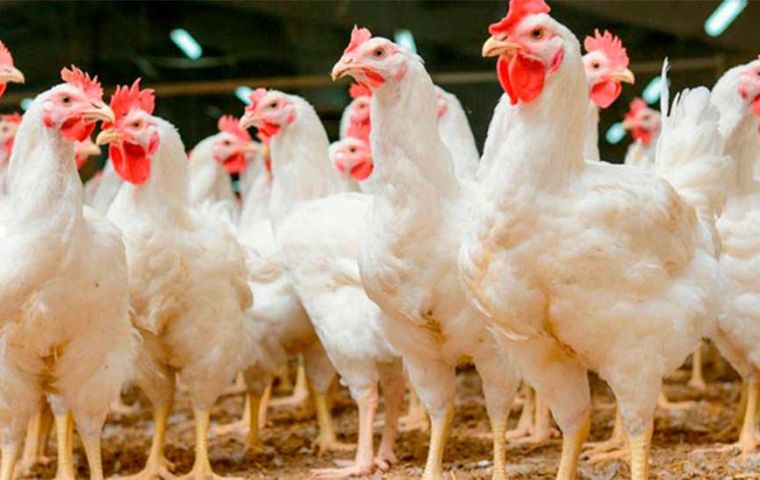MercoPress. South Atlantic News Agency
Bird flu reaches northern Argentina
 Humans are at “no risk of acquiring the disease through consumption” of poultry or eggs, Bahillo explained
Humans are at “no risk of acquiring the disease through consumption” of poultry or eggs, Bahillo explained Argentine authorities have declared a state of emergency after the first case of avian influenza was confirmed in wild birds in the northern province of Jujuy bordering Bolivia.
The National Service of Health and Agrifood Quality (SENASA) confirmed the infection of Andean geese, after receiving being tipped by park rangers, which forces “us to declare a sanitary emergency in our territory,” Agriculture Secretary Juan José Bahillo said during a press conference.
Bahillo admitted that the finding “did not take us by surprise” since avian influenza had been affecting several countries in the continent, spreading mainly by the migration of wild birds from North to South America, which “makes it very difficult to control.” The virus has been detected in the United States, Canada, Mexico, Panama, Honduras, Ecuador, Colombia, Venezuela, Cuba, Costa Rica, Bolivia, Chile, and Uruguay.
The official was confident Argentina would minimize the impact of avian flu because of poultry farms' strict safety standards. “We allow ourselves in principle to be optimistic that it would not be entering productive sectors,” said the Secretary of Agriculture.
Avian influenza is not transmitted to humans through the consumption of poultry meat or eggs. However, cases have been detected in people due to improper handling. In mid-January, Ecuador confirmed the infection of a nine-year-old girl who had been in contact with infected birds.
Under the state of sanitary emergency, Argentina will adopt special measures to prevent and detect cases early while strengthening the already existing precautions to avoid further spread southwards. Through the emergency declaration, Senasa officials have been empowered to enact additional regulations in that regard.
The first case of avian flu was recently discovered in Laguna de Pozuelos, Jujuy, where controls and evacuations will be reinforced, especially in poultry production regions. “There is no risk of acquiring the disease through consumption. We want to be clear that only an improper handling or an unwise attitude can cause some contagion in humans, but this is absolutely exceptional,” Bahillo insisted.
According to the World Health Organization (WHO), avian flu is rapidly increasing in different regions of the world. It mainly affects domestic birds, can be classified into two subtypes and is “highly” deadly.




Top Comments
Disclaimer & comment rulesCommenting for this story is now closed.
If you have a Facebook account, become a fan and comment on our Facebook Page!